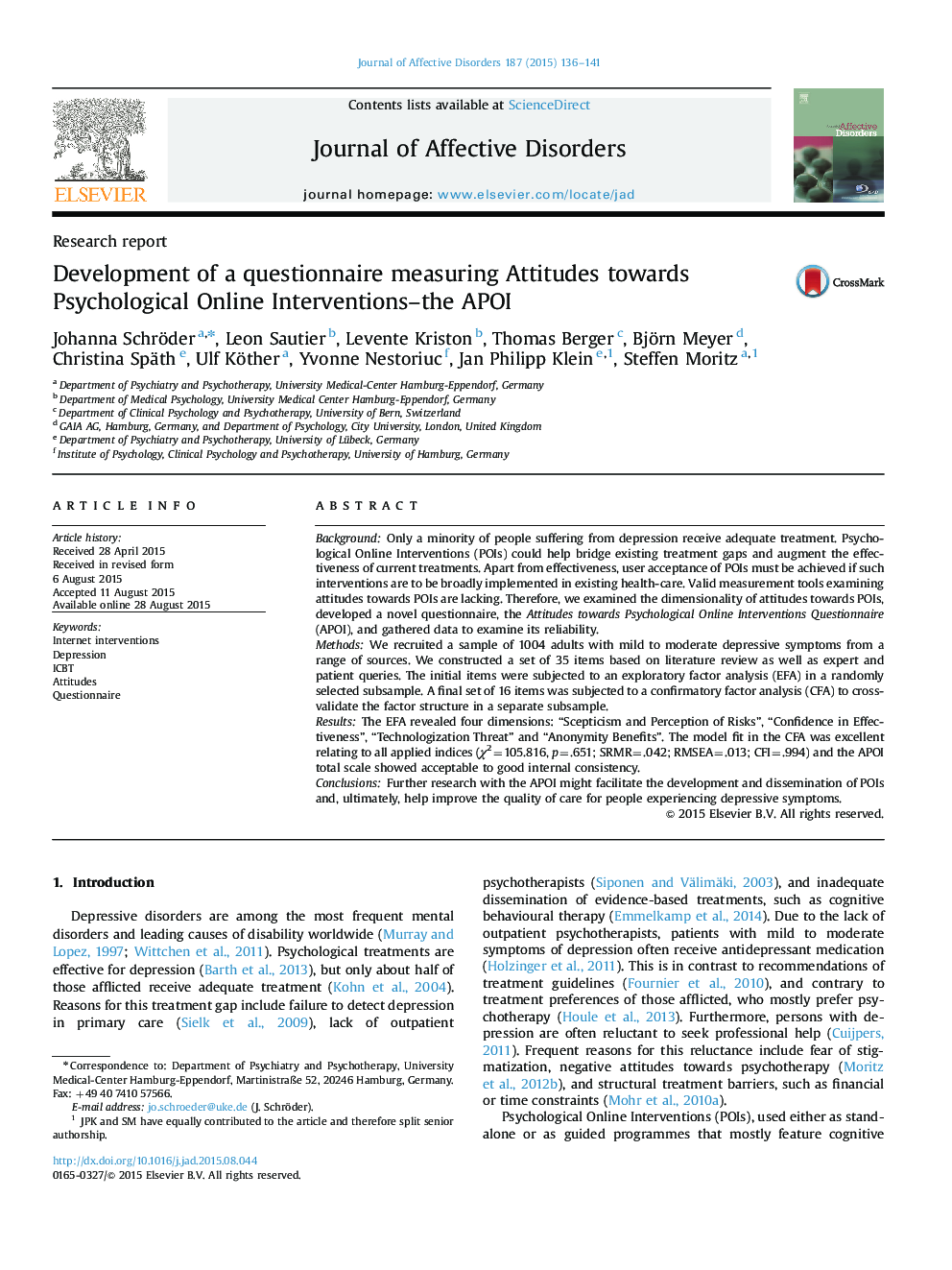| Article ID | Journal | Published Year | Pages | File Type |
|---|---|---|---|---|
| 6230978 | Journal of Affective Disorders | 2015 | 6 Pages |
â¢There is a treatment gap in people with symptoms of depression.â¢Psychological Online Interventions (POI) are effective and cost-effective.â¢We assessed attitudes towards POI in 1004 adults with depression.â¢Factor analyses revealed four relevant attitude dimensions.â¢The novel questionnaire (APOI) can be helpful in future research on POI.
BackgroundOnly a minority of people suffering from depression receive adequate treatment. Psychological Online Interventions (POIs) could help bridge existing treatment gaps and augment the effectiveness of current treatments. Apart from effectiveness, user acceptance of POIs must be achieved if such interventions are to be broadly implemented in existing health-care. Valid measurement tools examining attitudes towards POIs are lacking. Therefore, we examined the dimensionality of attitudes towards POIs, developed a novel questionnaire, the Attitudes towards Psychological Online Interventions Questionnaire (APOI), and gathered data to examine its reliability.MethodsWe recruited a sample of 1004 adults with mild to moderate depressive symptoms from a range of sources. We constructed a set of 35 items based on literature review as well as expert and patient queries. The initial items were subjected to an exploratory factor analysis (EFA) in a randomly selected subsample. A final set of 16 items was subjected to a confirmatory factor analysis (CFA) to cross-validate the factor structure in a separate subsample.ResultsThe EFA revealed four dimensions: “Scepticism and Perception of Risks”, “Confidence in Effectiveness”, “Technologization Threat” and “Anonymity Benefits”. The model fit in the CFA was excellent relating to all applied indices (Ï2=105.816, p=.651; SRMR=.042; RMSEA=.013; CFI=.994) and the APOI total scale showed acceptable to good internal consistency.ConclusionsFurther research with the APOI might facilitate the development and dissemination of POIs and, ultimately, help improve the quality of care for people experiencing depressive symptoms.
